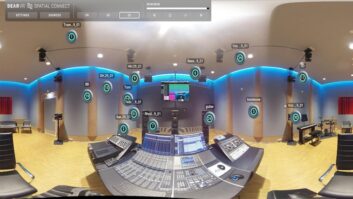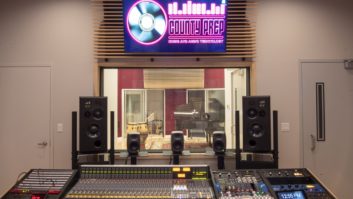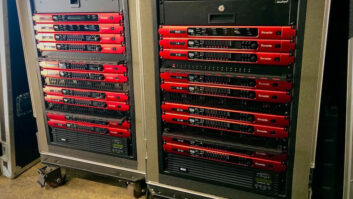Rob Tavaglione
Dear American High School Student,

As you look to the future and wonder how you’ll earn a living in this rapidly changing world, let me suggest a concentration of STEAM courses (Science-Technology-Engineering-Arts-Math) as the best course to a fruitful and rewarding career.
I try to keep a finger on the pulse of employment trends and macroeconomics, but even with a degree in Economics and Business Management, I’m afraid I still don’t understand the skilled-labor crisis facing the USA. So many people are under-employed. So many people are clamoring for good paying jobs and yet American industries cannot find enough educated persons to fill a slew of technical and engineering positions. Firms have been relying on global recruiting, meeting needs with imported talent from overseas and enjoying sub-market rates—a practice that has helped meet demand, but has also gained tremendous negative scrutiny. Therefore, change looms in the future and it can only benefit domestic engineering graduates.
Audio engineering does provide some challenging and lucrative opportunity, but frankly those positions are under heavy competition. With today’s audio educators doing a fantastic job of providing employers with well-trained and able-minded interns, the modern employer is cherry-picking only the very best and brightest for openings. If you’re top of your class, you’ll make it, all right; if you’re not, welcome to the world of entrepreneurism.
In recent conversations with fellow audio educators, they’ve all mentioned that our curricula should include classes on business management and strategy, as the modern engineer must master skills in self-management, finance and marketing in order to start and maintain a small business. This seems easy enough on the surface, but I’ve seen many skillful engineers succeed with sound waves even as they fail with “people problems” and self-promotion.
If you’re not terribly gregarious or a natural salesperson, allow me to recommend the world of the audio technician. Audio production only requires so many fader pushers, but there are many more positions available to those who can build a sound system, troubleshoot it, repair it, test circuits, solder bad connections and understand both the “hows” and the “whys” of sonic reproduction. Your first reaction may be “that’s too boring,” yet let me point out some of the hidden advantages of being a good tech:
Good Pay: While studio engineers are interning, assisting or even engineering, we’re facing tough competition for wages (when receiving any at all). Studio owners face market saturation and falling rates. Meanwhile, techs are earning good, steady money (e.g., audio repair rates hover around $75/hour) if it’s their shop; though receiving less as a shop employee, its still more than entry-level engineers or struggling studio start-ups.
Gratification: Ask many engineers and producers today and they’ll tell you something to the effect of “it’s become a thankless job.” Our employers (artists, broadcasters, labels, etc.) expect perfect content “right now,” regardless of the artist’s skill level. On the flip side, as techs design, build and repair, they often receive a sense of completion and success that helps to end days on a good note. Plus, with rather conventional work hours, techs have time (and funds) to pursue their own art as “weekend warriors,” etc.
Exciting Challenges: Despite the conventional notion that studio work and broadcasting is exciting for its proximity to celebrity, brilliance and artistry, I have to say that notion is typically not so. Here’s the truth—long studio sessions are simply long and tedious, genius is found briefly in small doses and excitement is fleeting. Conversely, tech work is no snooze-fest, with realistic examples like fleet-footed system fixes in front of thousands of impatient fans, emergency solder jobs that border on heroism, and a bit of elbow rubbing with appreciative musicial celebrities (I know lots of techs who have earned backstage passes from self-recording/producing artists for their analytical prowess).
I am seeing new trends develop as I interview about four audio-schooled grads a month. I’m located in much-ballyhooed Charlotte, North Carolina—a place with a lauded, growing and bustling economy. Who are the best candidates I’ve seen? The top two, just last week, moved to NYC to find gainful audio employment in hotel A/V departments. The take-away? There aren’t many studio or broadcast jobs vacant; only entry-level positions are available and nearly any one graduate will likely have to relocate to take such a position. For these two NYC-bound grads in my example above, it’s a tough road but they are employed in event production, allowing each to build skills and a resume while still looking for opportunity in the world of music production.
Short of being an entrepreneur and boldly opening your own studio, what is a young engineer to do?
Most importantly, stay in school. Graduate if you wish to have a reasonable chance at prosperity. Secondly, study STEAM courses and ingest all that you can in high school. Thirdly, attain a post-high-school degree, certificate or accreditation to prove your abilities and focus to employers. Finally, prepare for the hard work required to become an expert; it has been said it takes 10,000 hours to become a master in any chosen field. By my estimation, it will take five years of hard work—underpaid and under-appreciated—until you have the knowledge and skills to compete in the post-modern, audio-employment jungle.
Follow me on Twitter. https://twitter.com/RobTavaglione







